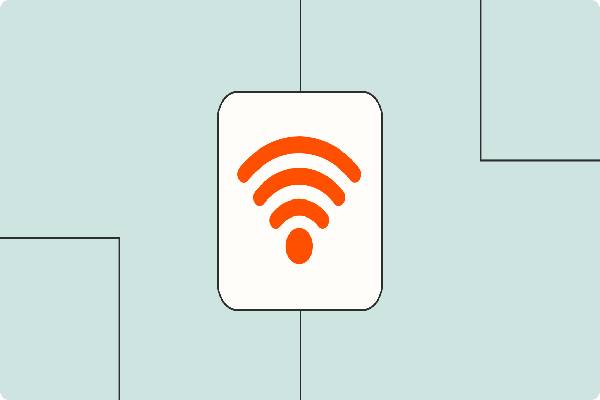Disadvantages Of Distributed System
Distributed systems have many advantages, but they also have some disadvantages. Here are some of the most common disadvantages of distributed systems:
Security risks: Distributed systems are more complex than
single-system architectures, which makes them more vulnerable to security
breaches. There are more potential points of entry for attackers, and it can be
more difficult to track down and fix security vulnerabilities.
Complexity: Distributed systems are additional complex to
design, implement, and maintain than single-system architectures. This complexity
can lead to errors and problems, and it can make it difficult to troubleshoot
and debug problems.
Overhead: Distributed systems require more overhead than
single-system architectures. This overhead can include things like network
traffic, communication costs, and synchronization costs.
Performance: Distributed systems can be slower than
single-system architectures. This is because the data has to be transferred
between different nodes in the system, which can add latency.
Scalability: Distributed systems can be difficult to scale.
This is because the system has to be designed to handle the increased load as
more nodes are added.
Despite these disadvantages, distributed systems can be a
good choice for applications that require high availability, scalability, or
fault tolerance. However, it is important to carefully consider the risks and
challenges before deploying a distributed system.
Here are some additional disadvantages of distributed
systems:
Data consistency: It can be difficult to ensure data
consistency in a distributed system. This is because the data may be stored in
different nodes, and it can be difficult to keep track of all the changes that
are made to the data.
Interoperability: Different nodes in a distributed system
may use different hardware, software, and protocols. This can make it difficult
to ensure that the nodes can interoperate with each other.
Management: Distributed systems can be difficult to manage.
This is because there are more nodes to manage, and the nodes may be located in
different physical locations.
Overall, distributed systems have both advantages and
disadvantages. It is important to carefully consider the specific needs of the
application before deciding whether to use a distributed system.
Advantages Of Distributed System
Distributed systems have many advantages over traditional
centralized systems. Here are some of the most common advantages of distributed
systems:
High availability: Distributed systems can be more highly
available than centralized systems. This is because if one node fails, the
other nodes can continue to operate.
Scalability: Distributed systems can be easily scaled to
meet the needs of a growing application. This is because new nodes can be added
to the system as needed.
Fault tolerance: Distributed systems can be more
fault-tolerant than centralized systems. This is because if one node fails, the
other nodes can continue to operate.
Performance: Distributed systems can sometimes offer better
performance than centralized systems. This is because the load can be
distributed across multiple nodes, which can improve the overall performance of
the system.
Cost-effectiveness: Distributed systems can sometimes be
more cost-effective than centralized systems. This is because the cost of
hardware and software can be spread across multiple nodes.
Geographic distribution: Distributed systems can be
geographically distributed, which can improve performance for users in
different parts of the world.
Resource sharing: Distributed systems can share resources
more efficiently than centralized systems. This is because the resources can be
located on different nodes, which can improve the overall utilization of the
resources.
Features Of Distributed System
Here are some of the features of distributed systems:
Resource sharing: Distributed systems allow resources to be
shared among different nodes in the system. This can improve the overall
utilization of the resources and reduce the cost of the system.
Openness: Distributed systems are typically open systems,
which means that they can be accessed by different applications and devices.
This makes them more flexible and scalable.
Scalability: Distributed systems can be scaled to meet the
needs of a growing application. This is because new nodes can be added to the
system as needed.
Fault tolerance: Distributed systems can be more
fault-tolerant than centralized systems. This is because if one node fails, the
other nodes can continue to operate.
Transparency: Distributed systems are typically transparent
to the user. This means that the user does not need to know that the system is
distributed.
Concurrency: Distributed systems can handle multiple
concurrent requests from different users. This is because the requests can be
distributed across different nodes in the system.
Security: Distributed systems can be more secure than
centralized systems. This is because the data can be stored on different nodes,
which makes it more difficult for attackers to access all of the data.
These are just some of the features of distributed systems.
The specific features of a distributed system will depend on the specific
application or service that it is used for.
Here are some additional features of distributed systems:
Geographic distribution: Distributed systems can be
geographically distributed, which can improve performance for users in
different parts of the world.
Heterogeneity: Distributed systems can be heterogeneous,
which means that the nodes in the system can be different from each other. This
can make the system more flexible and scalable.
Autonomy: The nodes in a distributed system are typically
autonomous, which means that they can operate independently of each other. This
can make the system more fault-tolerant and scalable.
Communication: Distributed systems require communication between the nodes in the system. This communication can be done through a
variety of methods, such as message passing, remote procedure calls, or shared
memory.
Overall, distributed systems offer a number of features that
can make them a good choice for a variety of applications and services. They
are more scalable, fault-tolerant, and secure than centralized systems, and
they can be used to share resources and improve performance.
.jpg)

.jpg)
Comments
Post a Comment